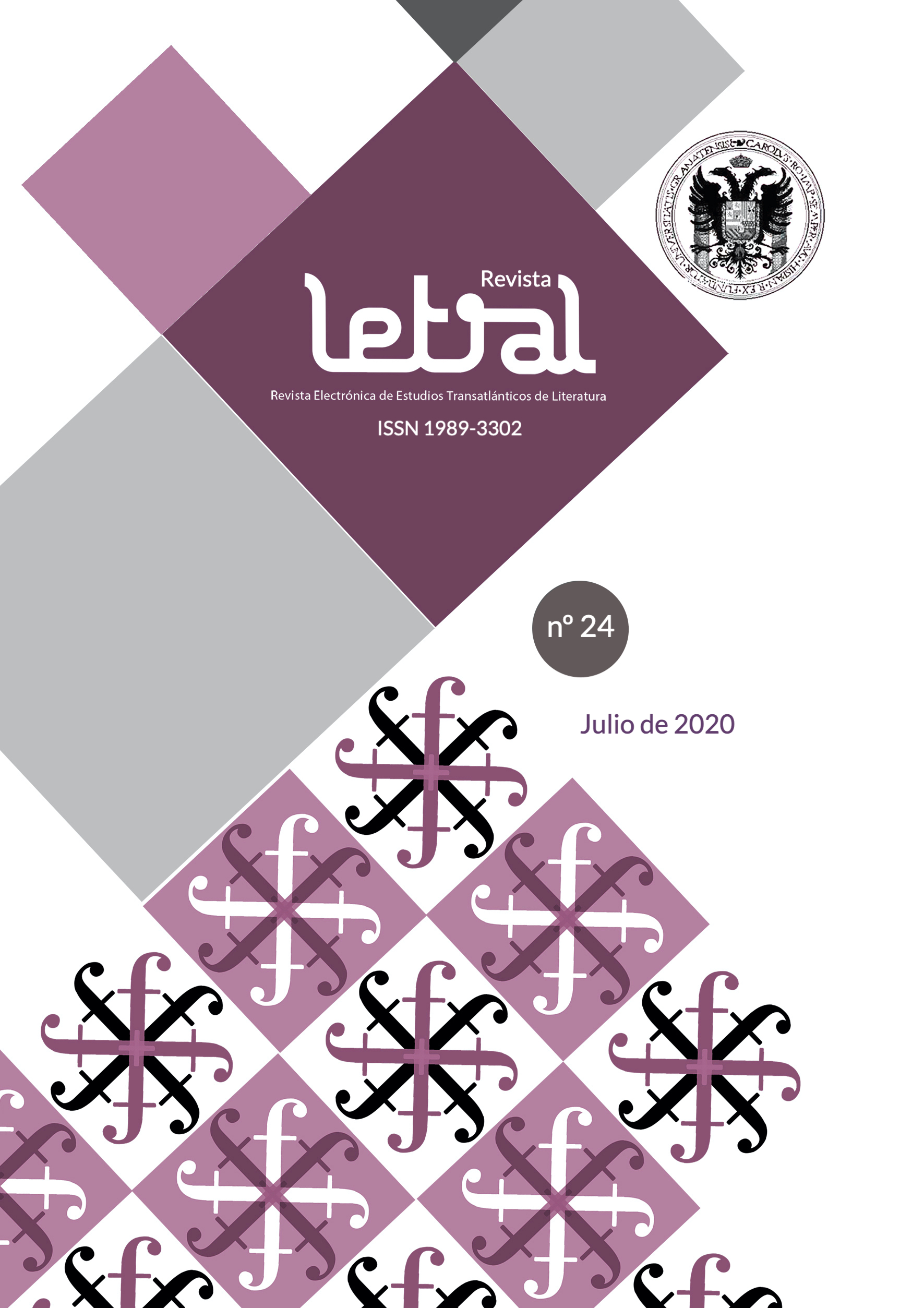The Threatened Eros: Bodies and Territories Won in Un Mundo Huérfano by Giuseppe Caputo
DOI:
https://doi.org/10.30827/rl.v0i24.11544Keywords:
Territory, precariousness, Eros and Thanatos, homoeroticism.Abstract
This article investigates the place that is awarded to diverse bodies and the struggles that these face in Giuseppe Caputo’s Un mundo huérfano (2016). In this work, we see a trope that is present throughout the history of literature: the relationship between Eros and Thanatos. Here, however, death is not a product of fatal love between lovers, rather, it is inflicted by those who consider that certain bodies, the Eros that is produced between them, are illicit, and they must, therefore, be erased from the territory. The novel manifests the orphanhood and precariousness in which individuals are found and who are not only marginalized for violating patriarchal and heteronormative standards but are relegated to the city limits. Nevertheless, the Eros enables the creation of a personal territory in which these bodies resist sovereign rule.
Downloads
References
Agamben, Giorgio. Homo Sacer. El poder soberano y la nuda vida I. Valencia, Pre-Textos, 2010.
Bataille, Georges. El erotismo. Barcelona, Tusquets, 2007.
Butler, Judith. Marcos de guerra. Las vidas lloradas. Bogotá, Paidós, 2017.
Caputo, Giuseppe. Un mundo huérfano. Bogotá, Penguin Random House, 2016.
Esposito, Roberto. Bíos. Biopolítica y filosofía. Buenos Aires, Amorrortu Editores, 2006.
Freud, Sigmund. El malestar en la cultura. Biblioteca libre OMEGALFA, 2010.
Han, Byung-Chul. La agonía del eros. Barcelona, Herder, 2014.
Legrás, Horacio. “Biopolítica. Vicisitudes de una idea”. Heridas abiertas: biopolítica y representación en América Latina, Mabel Moraña y Ignacio M. Sánchez Prado (eds.), Madrid, Iberoamericana Vervuert, 2014, pp. 31-46.
Massey, Doreen. “La filosofía y la política de la espacialidad: algunas consideraciones”. Pensar este tiempo: espacios, afectos, pertenencias, Leonor Arfuch (comp.), Buenos Aires, Paidós, 2005, pp. 103-127.
Rancière, Jacques. El reparto de lo sensible. Estética y política. Santiago de Chile, LOM Ediciones, 2009.
Villalobos-Ruminott, Sergio. “Biopolítica y soberanía: notas sobre la ambigüedad del corpus literario”. Heridas abiertas: biopolítica y representación en América Latina, Mabel Moraña y
Ignacio M. Sánchez Prado (eds.), Madrid, Iberoamericana Vervuert, 2014, pp. 47-64.
Yelin, Julieta. “La voz de nadie. Sobre el pensamiento del cuerpo en la literatura latinoamericana reciente”. Pasavento. Revista de Estudios Hispánicos, n.°1, vol. VII, 2019, pp. 97-113.
Zupančič, Alenka. What is sex? Cambridge, The MIT Press, 2017.
Published
How to Cite
Issue
Section
License
Revista Letral is an open access journal under a Creative Commons Atribución-NoComercial 4.0 license.
The works published in this journal may be reused, distributed and publicly presented for non-commercial purposes, provided that: cite the authorship and the original source of the publication (journal, publisher and URL of the work).
We strongly recommended you to share our published articles in social and scientific networks, institutional and public repositories, personal or institutional websites, blogs, Google Scholar, ORCID, ResearchID, ScopusID, etc.
The journal allow the author(s) to hold the copyright and to retain publishing rights without restrictions.
We are completely free, both for readers and authors.














